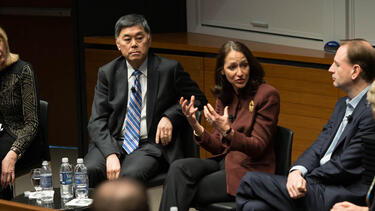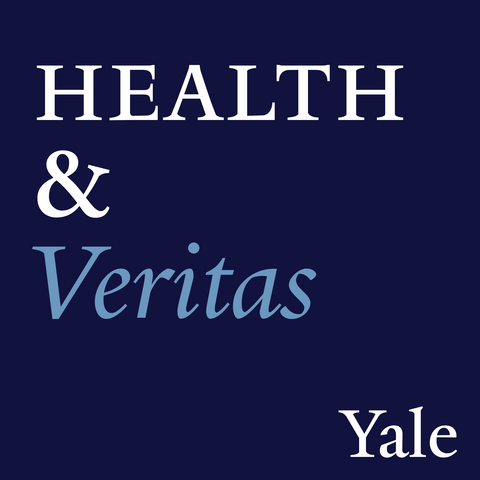Healthcare
Can a Clinic Comply with Trump’s Executive Orders Without Leaving Patients Behind?
For more than 50 years, New Haven’s Fair Haven Community Health Care has provided care to immigrants and other vulnerable populations. We talked with CEO Suzanne Lagarde ’14 about how the organization is grappling with federal executive orders and budget cuts that threaten its mission.

Community Motivation and Subsidies Increase Toilet Use in Developing World
A combination of community motivation and subsidies targeted to the poor is the most effective way to increase toilet ownership and use, and decrease open defecation, in developing countries, according to a new study published in the journal Science.
Where Will Healthcare Innovation Come From?
Healthcare is an industry as much as a science. Innovations that enable the system to deliver better quality at a lower cost are as likely to come from IT, business processes, and design as from new medicines. Moving medicine fully into the digital world could be the linchpin of a more integrated, coordinated approach, if the technology can mesh neatly with the needs of patients, providers, and payers; existing business models; and the complexity of medicine itself.

What Can Big Data Do for Doctors?
Electronic medical records and big data have huge promise for improving medicine, but creating a system that works for physicians is a daunting task. By starting with a single specialty—dermatology—Modernizing Medicine has created an electronic application that allows doctors to rapidly enter clinical information, and to draw on the data gathered from thousands of others doing the same. Co-founder Dr. Michael Sherling ’02 discussed the endeavor and how it fits into broader efforts to mesh incentives, incorporate technology, and execute effective change.
Medicate to Educate: Study Finds Stimulant Use Increases by 30% During the School Year
Children are 30% more likely to take a stimulant medication during the school year than they are to take one during the summer, according to a new study published in the American Sociological Review. The authors found that school-year increases in stimulant use are largest for children from socioeconomically advantaged families. Because many children use stimulants only during the school year and take a “drug holiday” in the summer, the authors conclude that these children are using stimulants to manage their schools’ academic demands.
What Do the Numbers Say About Global Health?
The state of global health is never static. The past century has seen some of the greatest advances in life expectancy and overall health in human history. And yet huge disparities exist between rich and poor nations in measures such as infant mortality and life expectancy. Richard Skolnik, a global health expert, talks about how to use the data to inform better decision-making—and to save lives.
Can Pharma Reinvent Itself?
As patents on the blockbuster drugs of the 1990s expire, the pharmaceutical industry is facing—not for the first time—questions about the sustainability of its economic model. Clive Meanwell, CEO of The Medicines Company, says that the industry can help patients and make money by changing the nature of its relationship to the healthcare system.
Can Big Data Make Healthcare More Effective?
The alluring promise of big data is to make sense of the innumerable messy and complex decisions made by the world's consumers and provide clear guidance for improved operations, marketing, and performance. How close that promise is to reality varies greatly from industry to industry. A panel at the Yale School of Management considered the challenges and opportunities in using big data to improve healthcare.
Is Innovation Enough to Make People Healthier?
The Yale School of Management brought together the FDA commissioner, the head of a health insurance company, the CEO of an Internet media empire, and the incoming chief of England’s National Health System to discuss the future of healthcare innovation and the state of care itself.

What Will Healthcare Look Like after the Affordable Care Act?
At the moment, the most visible parts of the Affordable Care Act are the newly launched—and glitchy—insurance exchanges, intended to extend coverage to millions of individuals. But healthcare reform also includes measures designed to slow the growth of healthcare spending and improve outcomes. In the coming years, the ACA will “transform how we deliver healthcare to individuals,” says Ezekiel Emanuel, a doctor, bioethicist, and advisor to the Obama administration.
How Will We Know if Healthcare Reform Is Working?
The Affordable Care Act, also known as Obamacare, remains a focus of heated political rhetoric—rhetoric that can obscure what’s actually happening in the healthcare system. A panel of Yale experts discussed what metrics we can look at to know if the law is increasing coverage and reducing costs as intended—and whether there are unintended effects on the larger economy.
